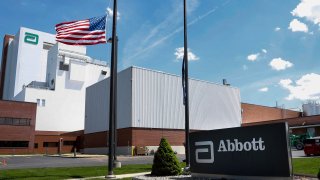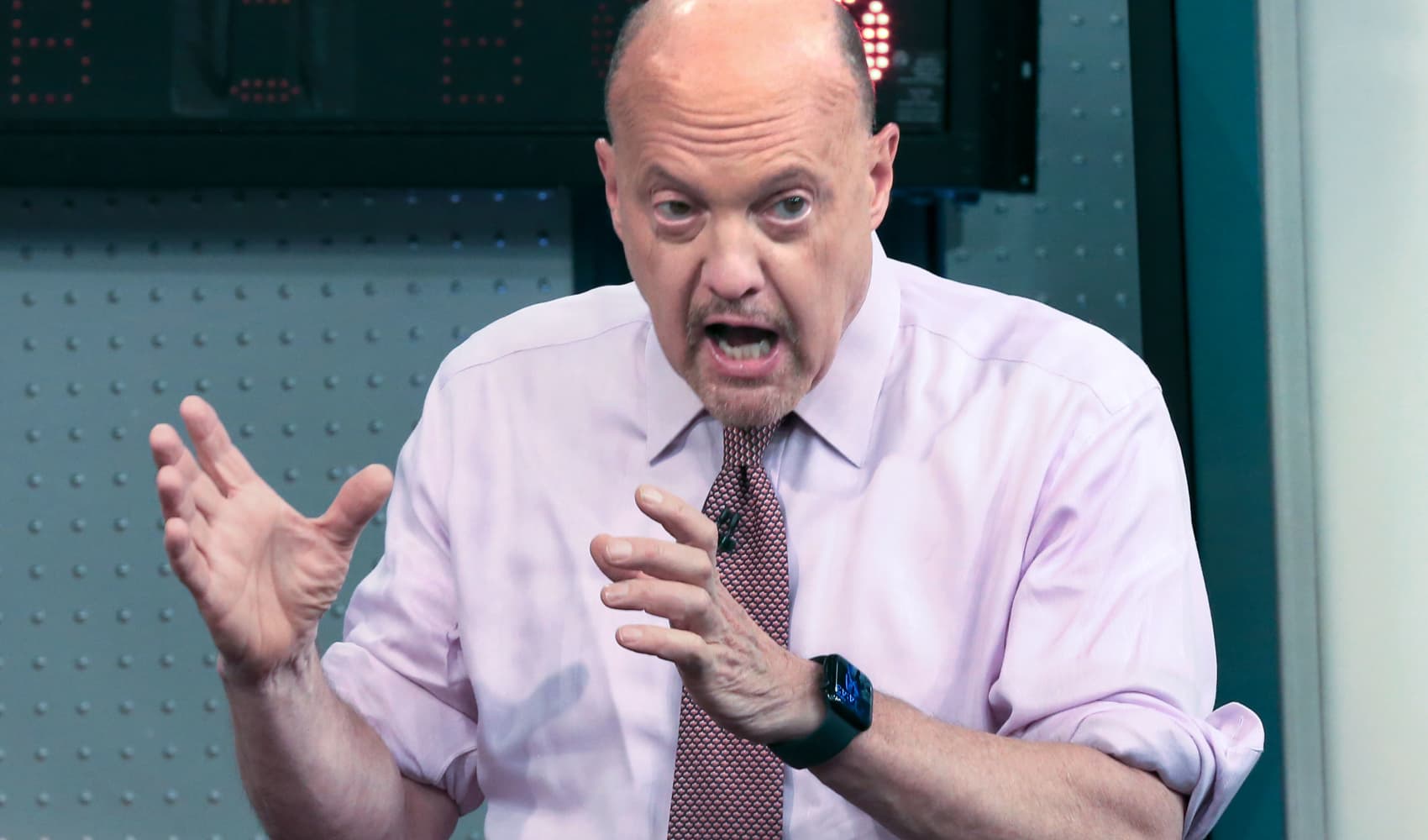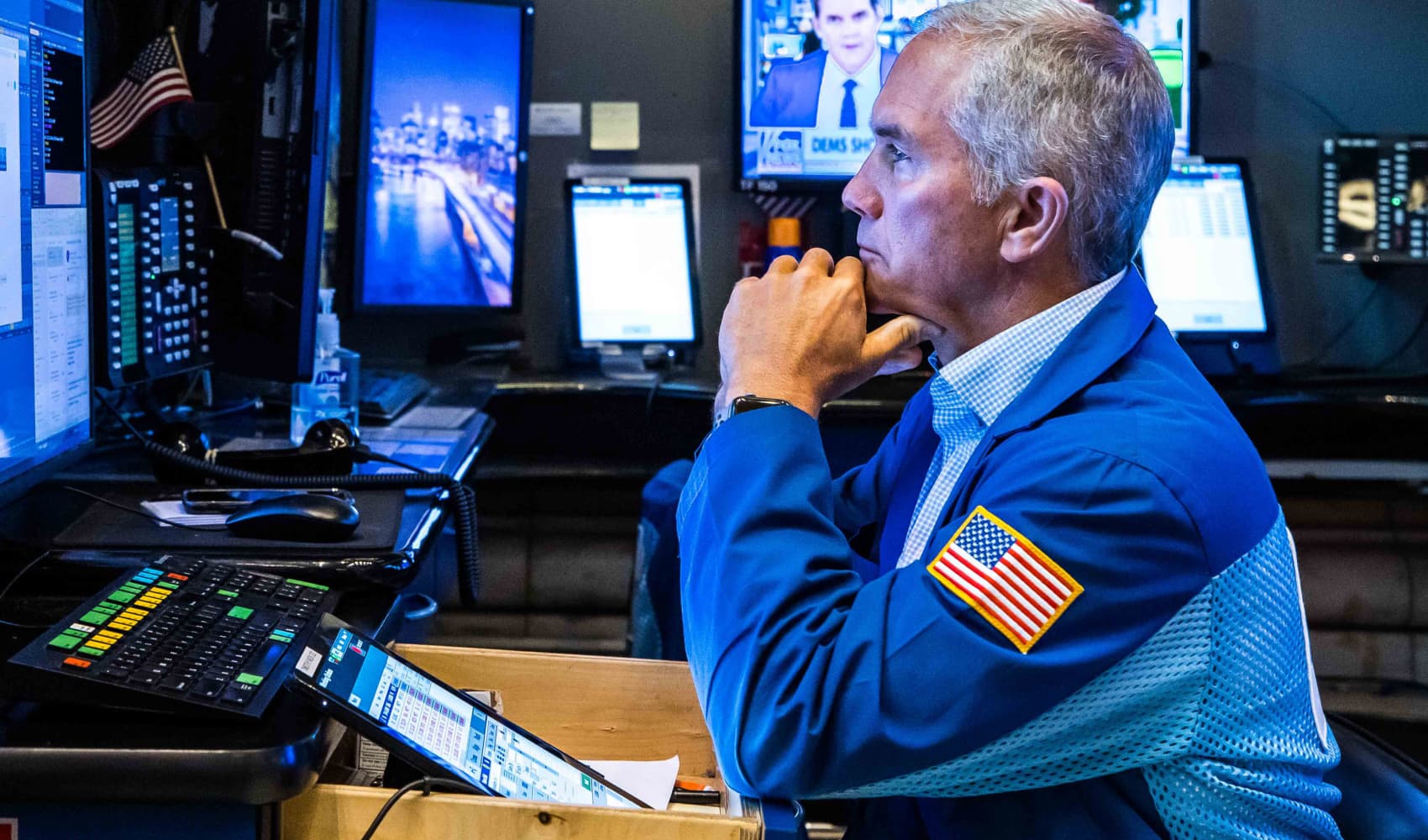
- Senate Finance Committee Chair Ron Wyden sent a letter to Abbott CEO Robert Ford requesting information on the company's tax practices and $8 billion stock buybacks the company has authorized since 2019.
- Wyden also requested information on how much money Abbott spent to upgrade an infant formula plant Michigan prior to its closure due to bacterial contamination.
- The plant closure has played a major role in the infant formula shortage across the U.S.
The Senate Finance Committee on Wednesday opened an investigation into Abbott Labs, the company at the center of a baby formula shortage in the U.S.
Committee Chairman Sen. Ron Wyden, D-Ore., sent a letter to CEO Robert Ford requesting information on Abbott's international tax practices and $8 billion in stock buybacks the company has authorized since 2019.
Wyden also requested information on how much money Abbott spent to upgrade an infant formula plant in Sturgis, Mich. prior to its closure due to bacterial contamination as well as whether the company used billions of dollars in tax cuts to repurchase shares rather than invest in the facility.
Get San Diego local news, weather forecasts, sports and lifestyle stories to your inbox. Sign up for NBC San Diego newsletters.
The closure of the Michigan plant has played a major role in the infant formula shortage that has left parents scrambling to find food for their babies with stores shelves empty in many communities. Four manufacturers — Abbott, Mead Johnson Nutrition, Nestle USA and Perrigo — control 90% of the infant formula market in the U.S.
"As Abbott spent billions buying back its own stock, it appears that it failed to make necessary repairs to fix a critical manufacturing plant of infant formula located in Michigan," Wyden wrote. "The closure of the plant has contributed substantially to a national shortage of infant formula, putting families across the country at risk," the senator said.
Abbott, in a statement, said it complies with all tax laws in the U.S. and abroad. The company's stock buybacks did not impact its ability to invest in or re-open the Michigan plant, spokesman John Koval said.
Money Report
Abbott's tax rate on its earnings has declined substantially since the Republican-controlled Congress passed a massive tax cut in 2017 that lowered the corporate rate to 21%. Abbott paid a tax rate of about 14% in 2021, down from 25% in 2016, according to securities disclosures. Abbott's net earnings have increased by about 90% during the pandemic, from $3.69 billion in 2019 to $7 billion in 2021.
Wyden said Abbott appears to have benefited from using overseas tax havens. Abbott, in its annual report for 2021, said it benefited from lower tax rates and exemptions on foreign income from its operations in Puerto Rico, Switzerland, Ireland, the Netherlands, Costa Rica, Singapore and Malta.
In February, Abbott closed its infant formula plant in Michigan after the Food and Drug Administration found contamination at the facility from the bacteria Cronobacter sakazakii. Four infants who ate powered formula from the plant were hospitalized with Cronobacter, two of whom died.
Abbott has maintained there's "no conclusive evidence" to link the illnesses to the bacteria found at the plant. However, the company has recalled its Similac PM 60/40, Similac, Alimentum and EleCare baby formula produced at the Sturgis facility.
Abbott reached an agreement this week with the FDA to reopen the Sturgis facility through a consent decree with conditions enforceable by a federal court. Under the consent decree, Abbott is required to bring in a team of independent experts to develop a plan for the Michigan plant to come into compliance with U.S. food safety laws. The company has said it can restart the plan within two weeks, subject to FDA approval, but it will take up to eight weeks for products to arrive in stores again.
Abbott is required to shut the plant down again if any products test positive for Cronobacter or Salmonella and can only reopen again if the FDA confirms the contamination has been eliminated.
FDA Commissioner Robert Califf, in a statement Monday, said the agency will do everything possible to ensure that infant formulas produced by Abbott meet safety and quality standards.
Califf will face questions from lawmakers about the infant formula shortage during a hearing in the House Appropriations agriculture subcommittee Thursday. Abbott executive Christopher Calamari will face questions from House Oversight and Investigations subcommittee next Wednesday.






